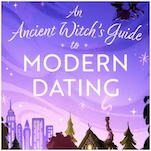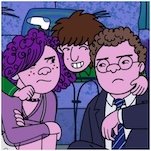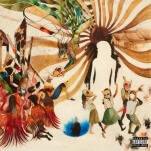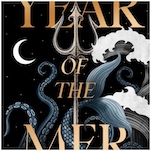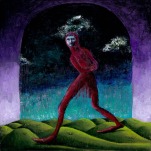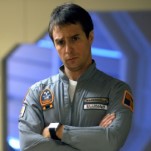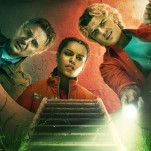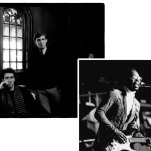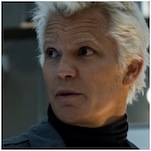It Still Stings: HBO’s Prestige Show Watchmen Was Too Much at Once
Photo Courtesy of HBO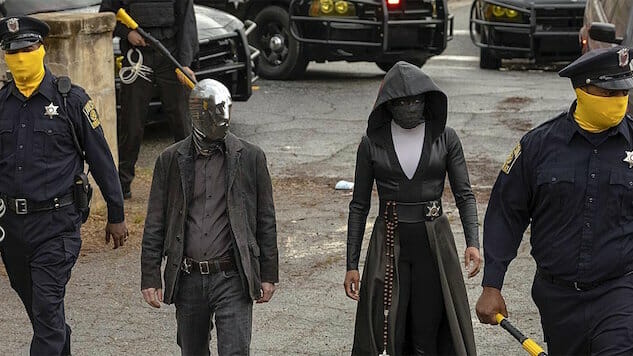
Editor’s Note: TV moves on, but we haven’t. In our feature series It Still Stings, we relive emotional TV moments that we just can’t get over. You know the ones, where months, years, or even decades later, it still provokes a reaction? We’re here for you. We rant because we love. Or, once loved. And obviously, when discussing finales in particular, there will be spoilers:
![]()
When I first watched HBO’s Watchmen series in 2019, it mesmerized me. It took a beloved and respected graphic novel from the mid-1980s and tried to make it relevant for the late-2010s by addressing themes the original overlooked. When Damon Lindelof adapted this story (by writer Alan Moore and artist Dave Gibbons) into a limited series television sequel, it was controversial—Alan Moore doesn’t like his work being adapted. Moore believes comics are a legitimate medium all their own, and hasn’t been happy with any of the film versions of his work: From Hell, The League of Extraordinary Gentlemen, V for Vendetta, or Zach Snyder’s 2009 Watchmen. Still, the show would go on to captivate audiences, teach people about the Tulsa Greenwood Massacre, and win 11 Daytime Emmys, including Best Actress for Regina King.
But besides being heavily acclaimed, HBO’s celebrated Watchmen series is also a mess.There are unanswered questions, dangling plot threads and disappearing characters, illogical reuse of dialog and symbols, and an arbitrary withholding of information that contributes to greater issues. The show tries to do too much and, upon closer inspection, it does not succeed.
The biggest problem is that it assumes prior knowledge of the graphic novel. Assuming prior knowledge wouldn’t matter if it wasn’t contradicted just as contradicting that prior knowledge wouldn’t matter if the story stood on its own. The story could best stand on its own if it wasn’t reliant on building its plot around a minor character from the original graphic novel (the universe’s original superhero, Hooded Justice) and tying him into a historical event with which he does not need to be associated (the Tulsa Greenwood Massacre) so that the show can brush up against themes it doesn’t know how to tackle but wants to be about, like racism, trauma, and policing. Or it might stand better on its own if it didn’t reuse the same basic story structure as the original and pin the story to the direct involvement of the original central characters. A murder mystery leads to uncovering a violent conspiracy by a billionaire to fix the world (Adrian Veidt/Ozymandias, played here by Jeremy Irons, with his antagonistic role supplanted)—to change the ending (the godlike Dr. Manhattan dies but neither villain succeeds).
The more I see of these adaptations that Alan Moore famously doesn’t want made, the more his stance makes sense to me. In the case of V for Vendetta, his criticisms focused on the movie missing the conversation around fascism and anarchy central to the book. In Zach Snyder’s Watchmen film, the ending was changed to make it more believable (in turn undercutting its meaning), as well as pulling out major character development scenes. In the case of the Watchmen TV series, the original ending of the comic book does happen: a crazy billionaire “superhero” manufactures a giant alien brain squid to appear in New York City and kill three million people with a psychic shockwave. However, characters like Dr. Manhattan and Ozymandias are much changed from their original appearances, and general information is presented in a scattershot way that requires outside reading.
For example, HBO provided in-universe supplementary material through “Peteypedia,” a fictional FBI database run by and named after a minor supporting character (Dustin Ingram as Agent Petey) who disappears from the show’s third act, but they didn’t advertise it heavily. It was transmedia necessary to understand canon that was mostly found by geeks like me searching Google and Reddit. It worked like the back matter of the comic books, which included excerpts of in-universe memoirs, articles, and interviews to flesh-out the universe, but I only knew about it because my excitement after the premiere sent me to the internet; no one else I know that watched the show, except for the We Watch Podcast, was aware of the site. So even in rewatching, I wondered: how the hell is anyone who isn’t reading the extra stuff making sense of this? And, moreover, how can anyone that hasn’t read the book follow what’s going on?
The show itself is intentionally confusing from the beginning, which initially charmed me because I like surprises. However, subverting expectations is not a virtue all on its own, as HBO might have learned from the reception of the later seasons of Game of Thrones. Moreover, the arbitrary withholding of information from a scene to reveal that information later in a different perspective of that scene feels cheap once it becomes a repeat trick. The show is seven episodes of setup and two episodes of payoff; it’s six episodes of a mystery, and three episodes of a love story. To care about that love story, it helps to have read the comics, but if you’ve read the comics, the love story—like so much of the show—doesn’t make sense.
-

-

-

-

-

-

-

-

-

-

-

-

-

-

-

-

-

-

-

-

-

-

-

-

-

-

-

-

-

-

-

-

-

-

-

-

-

-

-

-

